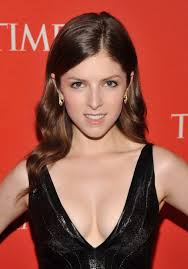Zadie Smith: By the Book
【野马絮语】《纽约时报》(The New York Times)“书评栏目”(Book Review)里的一个非常有意思的专栏“手不释卷”(By the Book:Writers on literature and literary life)。每期一位知名作家谈文学、阅读及其创作生涯。转载于此。分享给不便翻墙的文学爱好者们。
原文见:The New York Times >Nov. 17, 2016
The author, most recently, of “Swing Time” says the best gift book she ever received was from her dying father, who “gave me his copy of ‘Ulysses,’ along with the confession he had never read it.”
What books are on your night stand now?
I’m on a reading jag after a long period of only writing, so there’s a towering “to read” pile: “Sudden Death,” by Álvaro Enrigue; “Using Life,” a novel by the imprisoned Egyptian Ahmed Naje; “Homegoing,” by Yaa Gyasi; “Heroes of the Frontier,” by Dave Eggers; “The Underground Railroad,” by Colson Whitehead; “Diary of the Fall,” by Michel Laub; “The Good Immigrant,” edited by Nikesh Shukla; “Why Nations Fail: The Origins of Power, Prosperity, and Poverty,” by Daron Acemoglu and James A. Robinson; “Birth of a Bridge,” by Maylis de Kerangal; “Known and Strange Things,” by Teju Cole; “The Little Communist Who Never Smiled,” by Lola Lafon; “The Fire This Time,” edited by Jesmyn Ward; “At the Existentialist Café,” by Sarah Bakewell; “Time Reborn,” by Lee Smolin; “Moonglow,” by Michael Chabon; and let’s say the last four or five novels by Marías, several by Krasznahorkai, and — as always — unfinished Proust. I much prefer reading to writing: I can’t wait.
What’s the last great book you read?
I’ve been unusually lucky recently; I’ve read quite a few. Obviously the final volume of Ferrante, then Ottessa Moshfegh’s razor-sharp short stories “Homesick for Another World,” and Alexandra Kleeman’s stunning “You Too Can Have a Body Like Mine.” I tore through two volumes of “The Arab of the Future,” by Riad Sattouf — it’s the most enjoyable graphic novel I’ve read in a while. I was moved, agitated and inspired by Kathleen Collins’s rediscovered “Whatever Happened to Interracial Love”; Hisham Matar’s “The Return”; an early manuscript of Hari Kunzru’s “White Tears”; and Jonathan Safran Foer’s “Here I Am.” I’ve been meaning to read Dana Spiotta for years, and I’m so glad I finally did: “Innocents and Others” is terrific. John Berger’s “Portraits” is among the greatest books on art I’ve ever read. I had a sort of spiritual experience with it. No, let’s not be coy — I did! It was totally spiritual! But if I have to choose only one, then it’s “Lincoln in the Bardo,” by George Saunders. A masterpiece.
Tell us about your favorite overlooked or underheralded writer.
A Jamaican writer called Andrew Salkey, who wrote a Y.A. novel called “Hurricane” before Y.A. was a term. I remember it as the book that made me want to write. He was the most wonderful writer for children. I just found what looks to be a sequel, “Earthquake,” on an old-books stall on West Third, and I intend to read it to my kids. He died in 1995.

 What books are currently on your night stand?
What books are currently on your night stand? Whom would you want to write your life story?
Whom would you want to write your life story? Tell us about some of your favorite writers.
Tell us about some of your favorite writers. If you could require the president to read one book, what would it be? The Israeli prime minister?
If you could require the president to read one book, what would it be? The Israeli prime minister?